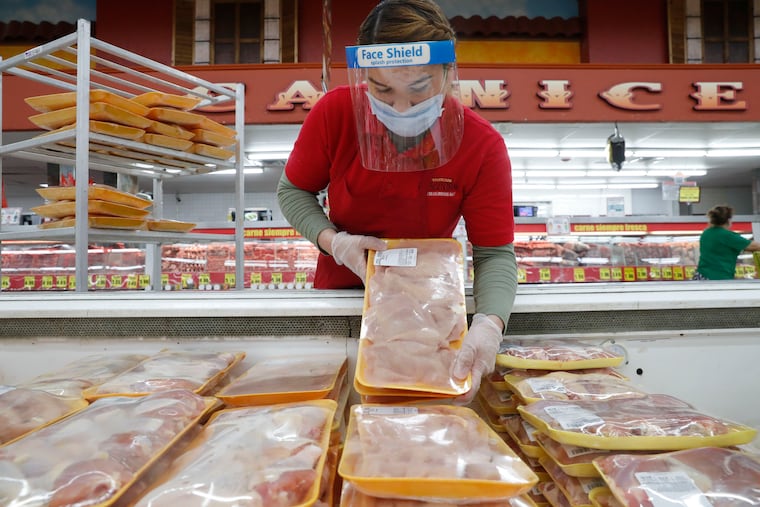Thanking low-wage frontline workers demands more than just a pay raise | Albert Eisenberg
When Pa. reopens, let’s remember the people who showed up to serve us: at the Acme, at our doorsteps, and at grandma’s nursing home.

We’ve seen the social media statuses, the claps for health-care workers, and the nurse-themed TikTok videos. If we are “at war” with the coronavirus, our frontline health-care workers are our soldiers, and we are rightfully treating them as such.
Less ink has been spilled, and less attention has been paid, to those keeping our daily world running, often behind the scenes — the low-wage frontline workers who do the jobs many readers and tweeters would deem beneath them. Our grocery cashiers, nursing home aides, and Uber Eats drivers come to mind.
So a proposal coming from Sen. Mitt Romney (R., Utah), which would give such workers a major lift without adding to our government expenditures, comes as a pleasant surprise from a GOP that often seems bereft of ideas to actually help people — and more concerned with opposing the greatest excesses of the Democrats in Congress, excessive as they are.
Romney’s “Patriot Pay” plan would give frontline workers making up to $50,000 annually a top-off of up to $12 an hour, and tapers off to include those making up to $90,000 as well.
It’s a way of saying thanks, of supporting and of providing an incentive to come to work as unemployment benefits have grown so generous that employers are struggling to get workers in the door. And it comes at no additional cost to the taxpayer, funded by a payroll tax credit rather than further expenditures as our already skyrocketing debt has exploded even further in the last few months.
Alas, Romney’s worthy proposal may be a nonstarter, between our president’s monumentally thin skin and the Democrats’ stalwart tactics and penchant for spending programs rather than tax breaks. In Washington, petty grievances and ideological dogma can steamroll the best of ideas.
When Pennsylvania reopens, let’s remember the people who showed up to serve us: at the Acme, at our doorsteps, and at grandma’s nursing home.
But it isn’t just throwing money at low-wage workers that the present situation demands of thinking people. Acknowledging their role in keeping our society functioning isn’t purely financial, and we don’t need a government program to right-size our perception of the people who serve us day in and day out.
It doesn’t require romanticizing low-wage work or condescending to the checkout clerk.
It means looking people in the eye — people who are different from ourselves — treating them with dignity, but not pity, and saying thank you.
The people who clean up our elderly in nursing homes, who have hauled themselves onto the Broad Street Line as the rest of us are holed up (many very comfortably), and those who are circling the streets with our hot meals, masks firmly in place, have faced the strain of all this. Most of all, they deserve our esteem.
There is little glamor in such work. And most of the people that fill these roles do not come from our upper or middle classes, as our nurses and doctors do.
Yes, it is time to safely reopen our society. A primary purpose of closing down our society was to expand hospital capacity in the face of this deadly scourge, and allow testing to catch up to the reality on the ground; we cannot encase ourselves in the ground for the next two years until this virus disappears, as some Nanny-Staters have begun to insist. One must imagine that those people have not been impacted economically yet, and are happily ordering in and staying home at their very same income level as before the pandemic hit.
But when we do open up, let’s remember the people who showed up to serve us: at the Acme, at our doorsteps, and at grandma’s nursing home. Their service allowed those of us peppering our feeds with “stay at home” statuses to actually do so, conveniently and safely, while the world outside, for the most part, turned forward.
Maybe, as we venture out of our homes once again, we can open our eyes, take a deep breath, and deign to see those who serve us a little clearer as well.